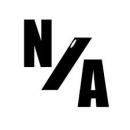Neal Ford
ÜberConf
Denver · July 18 - 21, 2017

Director / Software Architect / Meme Wrangler
Neal is Director, Software Architect, and Meme Wrangler at ThoughtWorks, a global IT consultancy with an exclusive focus on end-to-end software development and delivery.
Before joining ThoughtWorks, Neal was the Chief Technology Officer at The DSW Group, Ltd., a nationally recognized training and development firm. Neal has a degree in Computer Science from Georgia State University specializing in languages and compilers and a minor in mathematics specializing in statistical analysis.
He is also the designer and developer of applications, instructional materials, magazine articles, video presentations, and author of 6 books, including the most recent The Productive Programmer. His language proficiencies include Java, C#/.NET, Ruby, Groovy, functional languages, Scheme, Object Pascal, C++, and C. His primary consulting focus is the design and construction of large-scale enterprise applications. Neal has taught on-site classes nationally and internationally to all phases of the military and to many Fortune 500 companies. He is also an internationally acclaimed speaker, having spoken at over 100 developer conferences worldwide, delivering more than 600 talks. If you have an insatiable curiosity about Neal, visit his web site at http://www.nealford.com. He welcomes feedback and can be reached at nford@thoughtworks.com.
Presentations
Software Architecture Fundamentals, Part 1: From Developer to Architect
Part 1 of this workshop focuses on the many elements required to make the journey from developer to architect, covering process topics like the impact of Continuous Delivery on architecture, technical subjects like application, integration, and enterprise architecture, and soft skills. While we can't make you an architect overnight, we can start you on the journey with a map and a good compass.
Software Architecture Fundamentals, Part 2: Deeper Dive
Part two of this workshop takes a deeper dive in application, integration, and enterprise architecture topics, including evaluating architectures via Agile ATAM, the impacts of continuous delivery on architecture, comparing architectures, SOA, SOAP, and REST, integration hubs, and enterprise architecture approaches and strategies.
Software Architecture Fundamentals, Part 3 (hands-on): Architectural Katas
To fully leverage knowledge, you need application. Part three of this workshop uses the public domain Architectureal Katas exercise to apply learnings from the first two parts.
Continuous Delivery Workshop, part 1 of 3: Deployment Pipelines
The first part of the Continuous Delivery workshop covers the differences between continuous integration, continuous deployment, and continuous delivery). It also introduces the deployment pipeline_, along with usage, patterns, and anti-patterns. This part concludes with some applied engineering principles.
Continuous Delivery Workshop, part 2 of 3: Testing, Synergistic Practices, and Deployment
Continuous Delivery relies on a variety of interlocking engineering practices to work efficiently; this session covers three related topics. First, I cover the role of testing and the testing quadrant. Second, I specifically cover version control usage and offer alternatives to feature branching like toggle and branch by abstraction. Third, I describe some incremental release strategies, along with their impact on other stages of project lifecycle.
Continuous Delivery Workshop, part 3 of 3: Infrastructure and Data
Two big stumbling blocks for Continuous Delivery adaptation are interactions with operations and the keepers of data. First in this session, I cover operations, DevOps, and programmatic control of infrastructure. Second, I discuss how to incorporate databases and DBA's into the Continuous Integration and Continuous Delivery process.
Hypothesis/Data Driven Development using Feature Toggles
Hypothesis and data driven development ties together current thinking about requirements, Continuous Delivery, DevOps, modern architecture, and engineering techniques to help rethink building software.
Building Evolutionary Architectures Workshop
This workshop highlights the ideas from the forthcoming Building Evolutionary Architectures, showing how to build architectures that evolve gracefully over time.
Building Evolutionary Architectures Workshop
This workshop highlights the ideas from the forthcoming Building Evolutionary Architectures, showing how to build architectures that evolve gracefully over time.
Clojure Workshop
In an increasingly crowded field of languages, Clojure stands alone. It is a dynamic, functional, high performance dialect of Lisp that runs on both the JVM and CLR. The creator cast aside assumptions from both the Lisp and Java communities to create a remarkable language implementation.
Clojure Workshop
In an increasingly crowded field of languages, Clojure stands alone. It is a dynamic, functional, high performance dialect of Lisp that runs on both the JVM and CLR. The creator cast aside assumptions from both the Lisp and Java communities to create a remarkable language implementation.
Documenting and Presenting Software Architectures
This session covers two critical soft skills for architects:
- creating clear, concise documentation of software architecture, both structure and decisions
- presenting architectural ideas as clearly as possible
Build Your Own Technology Radar Workshop for Architects
A Technology Radar is a tool that forces you to organize and think about near term future technology decisions, both for you and your company. This talk discusses using the radar for personal breadth development, architectural guidance, and governance.
